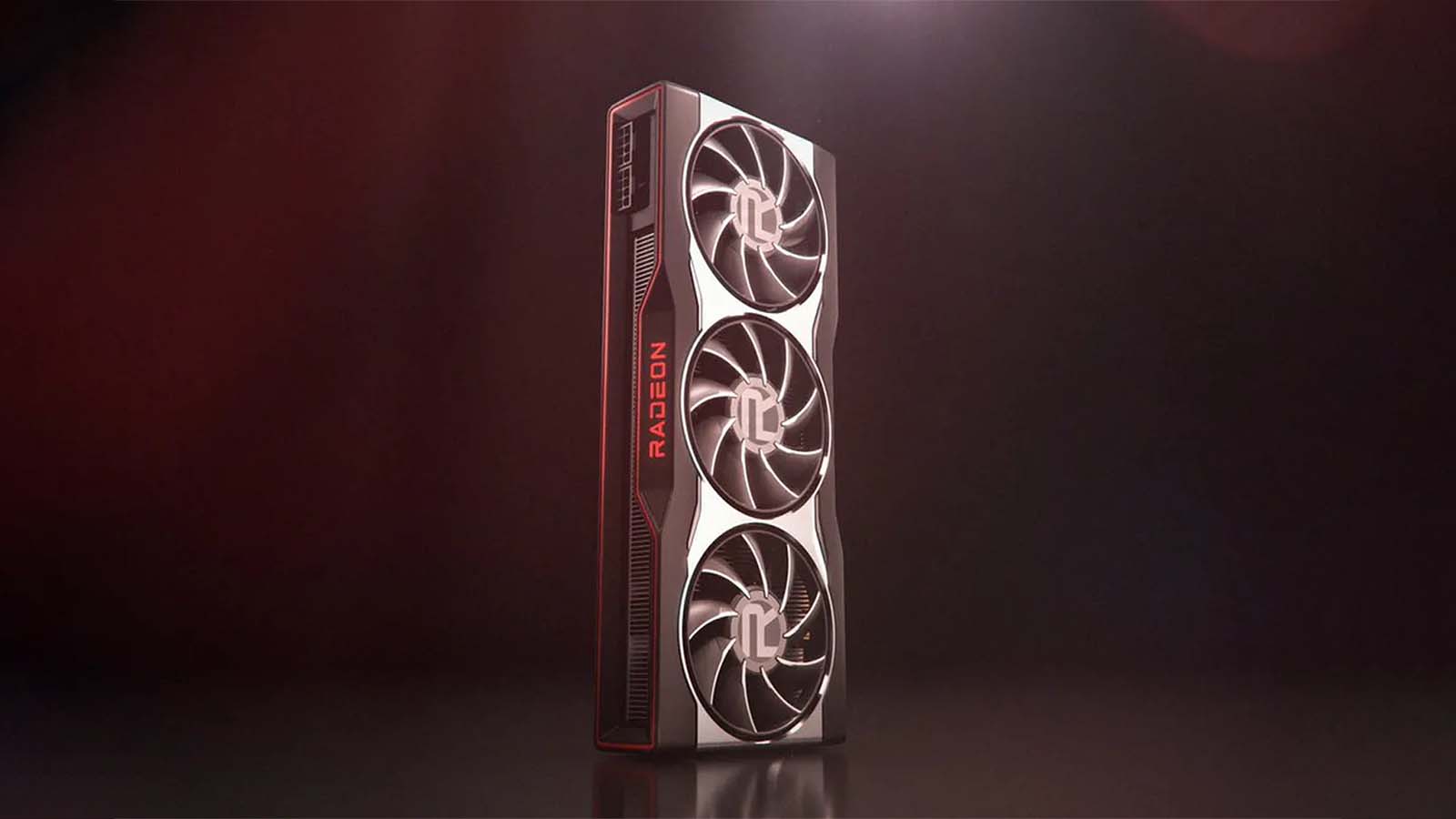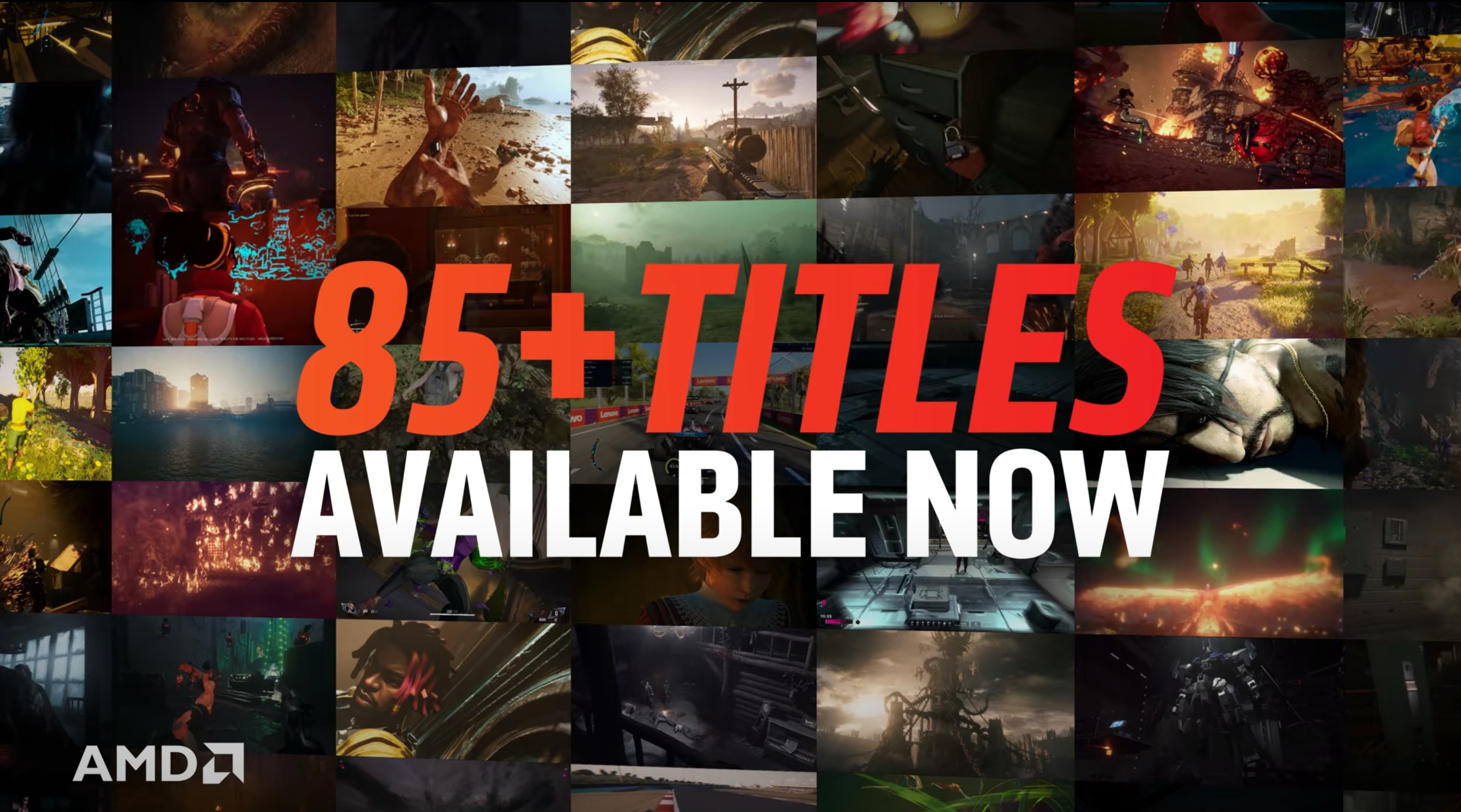AMD's FSR 4 upscaling tech gives even more PC games a free image quality upgrade – but you still need a modern GPU
Backwards porting is needed ASAP, AMD

- AMD's FSR 4 is now available in most FSR 3.1 and DX12 supported games
- The new Adrenalin Software driver allows users to override FSR 3.1 with FSR 4
- It only works in games that have a signed FSR 3.1 DLL
While AMD fans await an eventual FSR 4 backport to older non-RDNA 4 graphics cards alongside updates to the upscaling technology that's exclusive to some of the best GPUs on the market, Team Red has at least made life easier for developers and gamers.
As reported by VideoCardz, AMD's latest driver 25.9.1 adds further FSR 4 support for most FSR 3.1 and DX12-supported games, which AMD says is now 'over 85 games'. RDNA 4 GPU owners simply need to enable FSR 4 on the AMD Adrenalin Software and toggle on FSR 3.1 in a supported game, allowing the driver to override FSR 3.1 with FSR 4.
It's worth noting that this is only possible in games that have a signed FSR 3.1 DLL, which means the override won't work via third-party integration. While FSR 4 still hasn't been backported to RDNA 3 and older GPUs, FSR 4's driver override should make things much easier if a backport does happen soon.
Team Red's recent FSR 4 open-source slip-up revealed that it was (and potentially still is) working on an FSR 4 backport to RDNA 3. And with the FSR 'Redstone' presentation set to reveal frame generation and image quality improvements, it may not be far-fetched to suggest that AMD may have another surprise announcement in store.
AMD's fierce rival, Nvidia, has DLSS 4 available for all RTX GPUs; not only does it have the advantage of being widely available to more PC gamers, but the image quality is superior to FSR 4's, and there's nothing better than AMD's Redstone shortening the gap to Team Green's offering, while also allowing all (or at least most) Radeon GPU users to benefit from sharper images in games.
Analysis: FSR 4 on RDNA 3 and older GPUs should be AMD's number one priority

Without a doubt, Nvidia is still leading the GPU market. That's unsurprising, especially since the RTX 5000 series GPUs are gradually plummeting back to their launch prices – and Team Green is rumored to be launching Super series GPUs this fall.
With this in mind, it's time for AMD to at least provide its latest upscaling tech to RDNA 3 GPUs before Nvidia bridges the gap further.
Sign up for breaking news, reviews, opinion, top tech deals, and more.
Again, Nvidia already has DLSS 4 available on all RTX GPUs, except for Multi Frame Generation (exclusive to RTX 5000 series) and Frame Generation (starting from RTX 4000 series). DLSS 4 has shown how vital it is for upscaling tech to have sharper super-resolution image quality, and it shines bright even in DLSS performance, which benefits PC gamers with low-end hardware.
Team Red's FSR 4 has a similar effect with better image quality across its upscaling modes, and while it certainly doesn't match up to DLSS 4, it beats both FSR 3 and DLSS 3. As a handheld PC gamer, FSR 4 would do wonders at providing better performance via aggressive upscaling, without too much of a heavy sacrifice on image quality, like FSR 3 has.
It's the ideal time for AMD to get this going, as it would add to the firepower it needs to fully compete with its GPU rival.
You might also like...

Isaiah is a Staff Writer for the Computing channel at TechRadar. He's spent over two years writing about all things tech, specifically games on PC, consoles, and handhelds. He started off at GameRant in 2022 after graduating from Birmingham City University in the same year, before writing at PC Guide which included work on deals articles, reviews, and news on PC products such as GPUs, CPUs, monitors, and more. He spends most of his time finding out about the exciting new features of upcoming GPUs, and is passionate about new game releases on PC, hoping that the ports aren't a complete mess.
You must confirm your public display name before commenting
Please logout and then login again, you will then be prompted to enter your display name.